‘Black folks weren’t allowed to come in’: FSU coach Leonard Hamilton on segregation in NC
- Oops!Something went wrong.Please try again later.
Leonard Hamilton, the longest-serving active head basketball coach in the ACC, grew up in a segregated society in North Carolina.
In Gastonia, Hamilton remembers restaurants he wasn’t allowed to come inside due to his skin color. He sat in the balcony of a movie theater because Blacks weren’t allowed to sit downstairs. He drank from one water fountain; whites drank from another.
With the help of faith and family, Hamilton rose from those circumstances to a coaching career that has now spanned more than 50 years. At age 75, Hamilton has directed the Florida State basketball program since 2002 and will lead the Seminoles (16-15 overall, 10-10 ACC) in the ACC Tournament, which begins Tuesday in Washington, D.C. Seeded ninth, FSU will begin its tournament at noon Wednesday against No. 8 seed Virginia Tech.
In his “Sports Legends of the Carolinas” interview, the three-time ACC Coach of the Year opened up about Gastonia, segregation and a coaching career where Hamilton has always been entrusted with teams that need “a little fixing up.” This interview is edited for clarity and brevity. For a fuller version of the interview, check out the “Sports Legends of the Carolinas” podcast on all major podcast platforms.
Scott Fowler: What was it like growing up in Gastonia in the 1950s and 1960s?
Leonard Hamilton: When I was a youngster growing up, I came through segregation. And we were on one side of the town, other (white) folks were on the other side of town. But I was very fortunate. I think I had a good moral compass. My mother went through the seventh grade and my father went through the ninth grade. And they always complained that they hit a ceiling on what they could provide for us because they didn’t get their education.
I never lived more than 30-40 yards from my church. And every time the church door opened, we were in it, which gave me a pretty good solid moral background. ... I was always in the choir. ... I remember at 4-5 years old, my mother would give me a nickel to pay (into the offering plate) in Sunday School and a dime to pay in regular church.
The church was Mt. Zion Baptist Church on the corner of Morris Street and Allison: “Where everybody is somebody and Christ is all.” That was our motto.
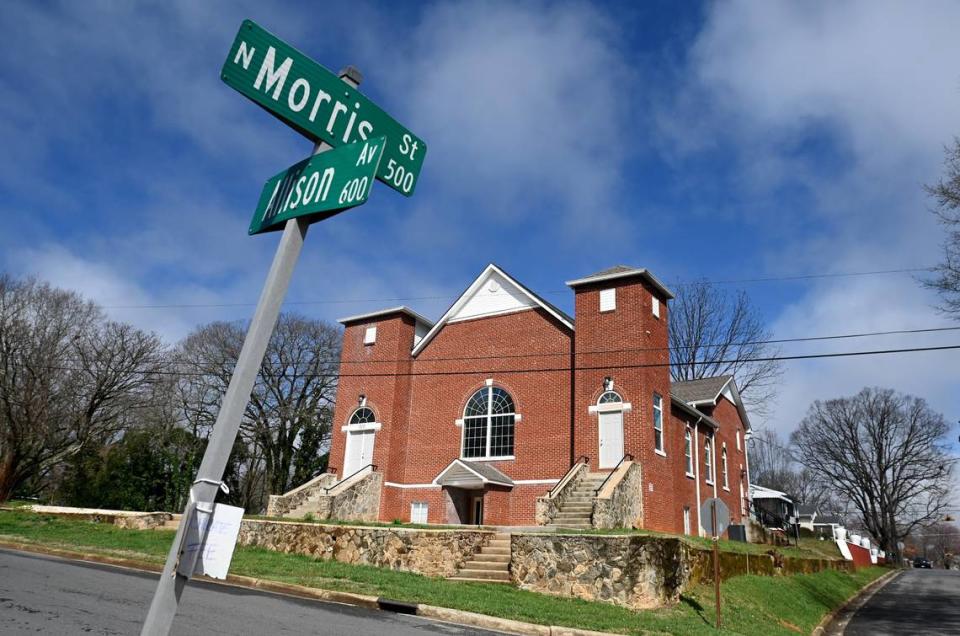
SF: What was your family’s financial situation?
LH: Oh, we were poor, but we didn’t know how poor we were. My mother was a domestic worker and my father was a truck driver. And we had a houseful of kids. There wasn’t a whole lot of money, but there was a whole lot of love.
No hot and cold running water. Bathroom on the back porch. Taking your bath in a tin tub. That was just a way of life.
My father and mother had a great influence on me. Even though we were in those segregated times, they never taught me to be bitter. My father mainly wanted us to understand we had to find a way to get an education. And one thing stuck with me. He said, “But understand this: I have absolutely no money.”
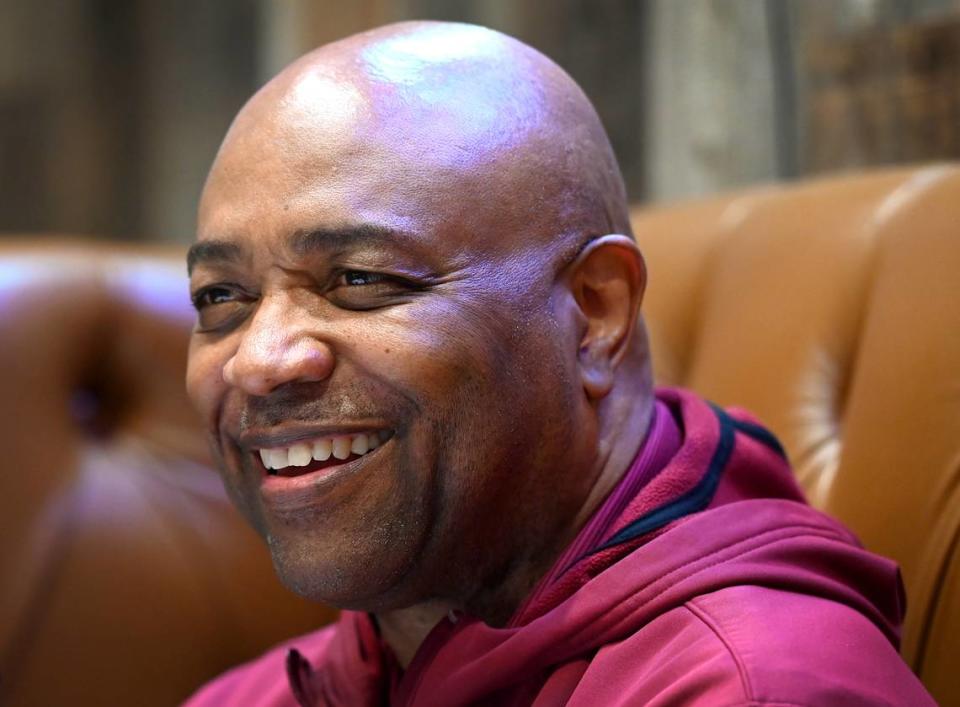
‘One of the more demeaning things’
SF: You were born in 1948. When you say Gastonia and North Carolina was segregated at that time, what did that mean personally for you?
LH: It was one of the more demeaning things that I had to encounter. It’s hard to go downtown to the store and you have to use the colored bathroom. You had to use the colored water fountains. There were restaurants you just absolutely couldn’t go in.
On Sunday nights, many times with our family, we would get in the car. All four boys would be in the backseat (Hamilton was the oldest brother). My sister would be in between my mother and father in the front seat.
And we would go to this restaurant that Black folks were not allowed to come into. And my father would go to the window, ring the bell, order two hot dogs apiece for all of us, and a milkshake apiece, and come back and sit back in the car. Then they’d flag him, and then we’d sit in the car and eat those hot dogs and drink those milkshakes.
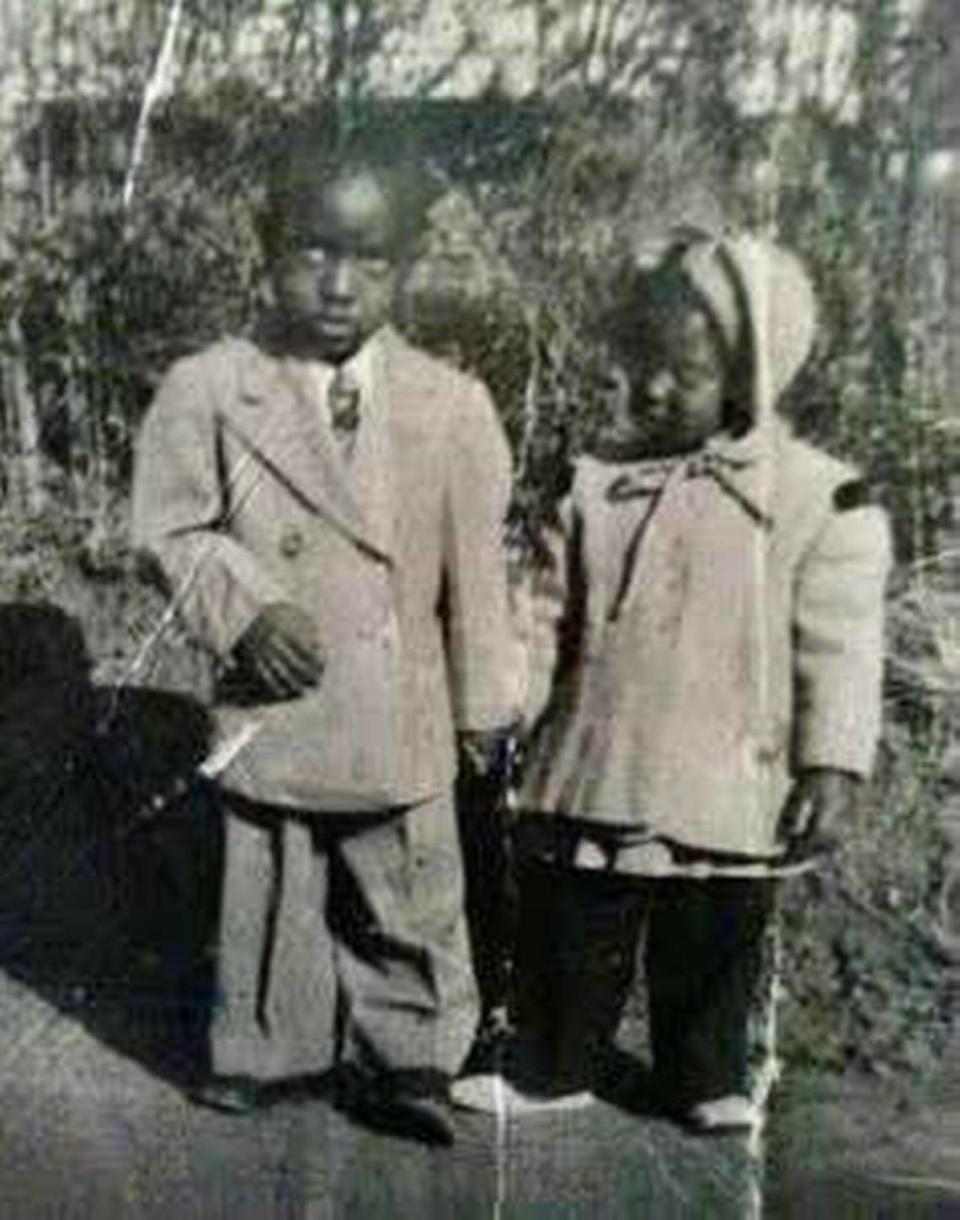
That was an evening we looked forward to, but I always had mixed feelings about it. It was a little demeaning. You accepted it, even though you didn’t like it.
SF: You actually had more football scholarship offers out of high school than basketball offers, right?
LH: Yes. I played football for Highland High, in Gastonia. I was the quarterback. We played West Charlotte — schools like that. All Black schools.
The only reason I played football was that my father wanted me to. He was a big guy. My father would never come to the game. He would park his car on the hill and scream and holler at me. I wasn’t nearly as good as he thought I was.
SF: Where did basketball come into the equation?
LH: In our neighborhood, basketball was just a way of life. We played morning, noon and night. It occupied us. We had an outdoor court. And then when we finally got a recreation center, only an eight-minute walk from where he lived, that was a blessing. But the court was like linoleum laying on top of cement. So that’s why I’ve had two hip surgeries.
SF: What was your original plan after high school?
LH: I had planned to go to the Army, even though I didn’t realize what was going on in Vietnam, and probably would not have tried to join had I really understood what was going on. No one in my family had ever gone to college.
But there was a coach named (Pete) Brooks that had just taken over the basketball job at Gaston Community College. So he’s riding around the community trying to find basketball players that can come to play. I was ducking him. But finally he caught me, and what he said to me made so much sense and changed my life. I decided to try to go to college.
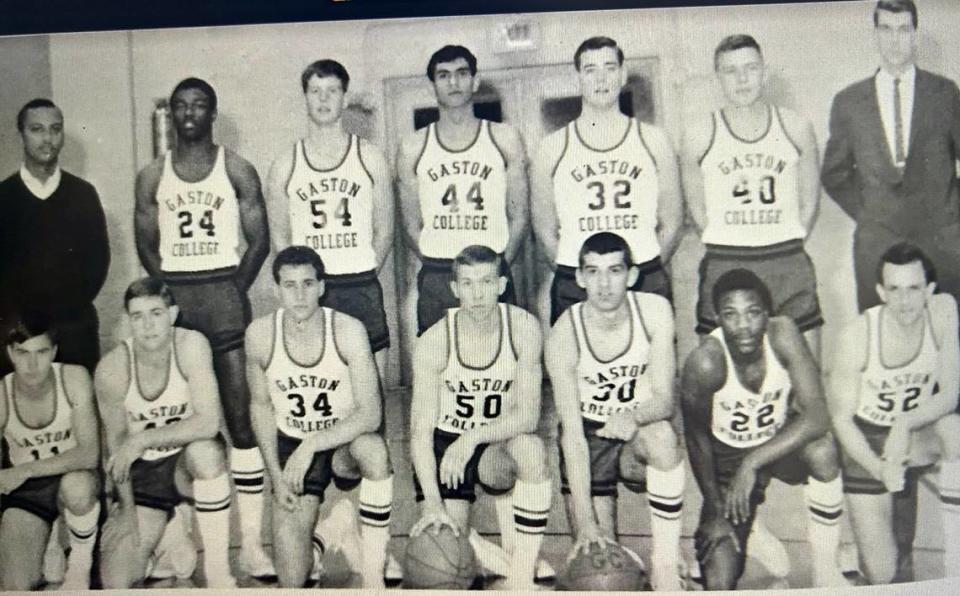
Pasta Night, and a fight
SF: Were you the only Black player at Gaston College when you began in 1966?
LH: There were two of us my first year but I was the main player. We played at a military school once and they was hitting me with ice, peanuts, rubber bands, calling me all kinds of (names). But you know, I ignored it. I never responded. But it got so bad that my coach locked me in the locker room at halftime and wouldn’t let me come out, because he feared that something bad might happen.
SF: You didn’t play in the second half?
LH: I didn’t. And for whatever reason, something happened during the game and they emptied the stands on my team. And Coach Brooks had to go to the hospital, he got his back hurt. And so they was out there fighting, mostly because of me, and I’m in the locker room protected and can’t get out. I felt horrible about it. But that was a sign of the times.
But Coach Brooks always stood by me. Whatever the issue was, he was Johnny on the spot. He would invite me to Pasta Night at the Howard Johnson’s.
SF: Pasta Night?
LH: Yes. He was trying to teach me how to use a spoon and a fork to roll up my spaghetti. And in my mind I was saying, “What is this guy talking about? I don’t need a system for me to take my fork and roll up the spaghetti with a spoon?” It took me a long while to understand.
But when I look back at it, here was this guy that realized I was unsophisticated. And he was trying to bring me out of this sheltered existence. And when I think about it kind of makes me emotional (Hamilton briefly chokes up), for a guy to care that much about me, and to try to help me without embarrassing me.
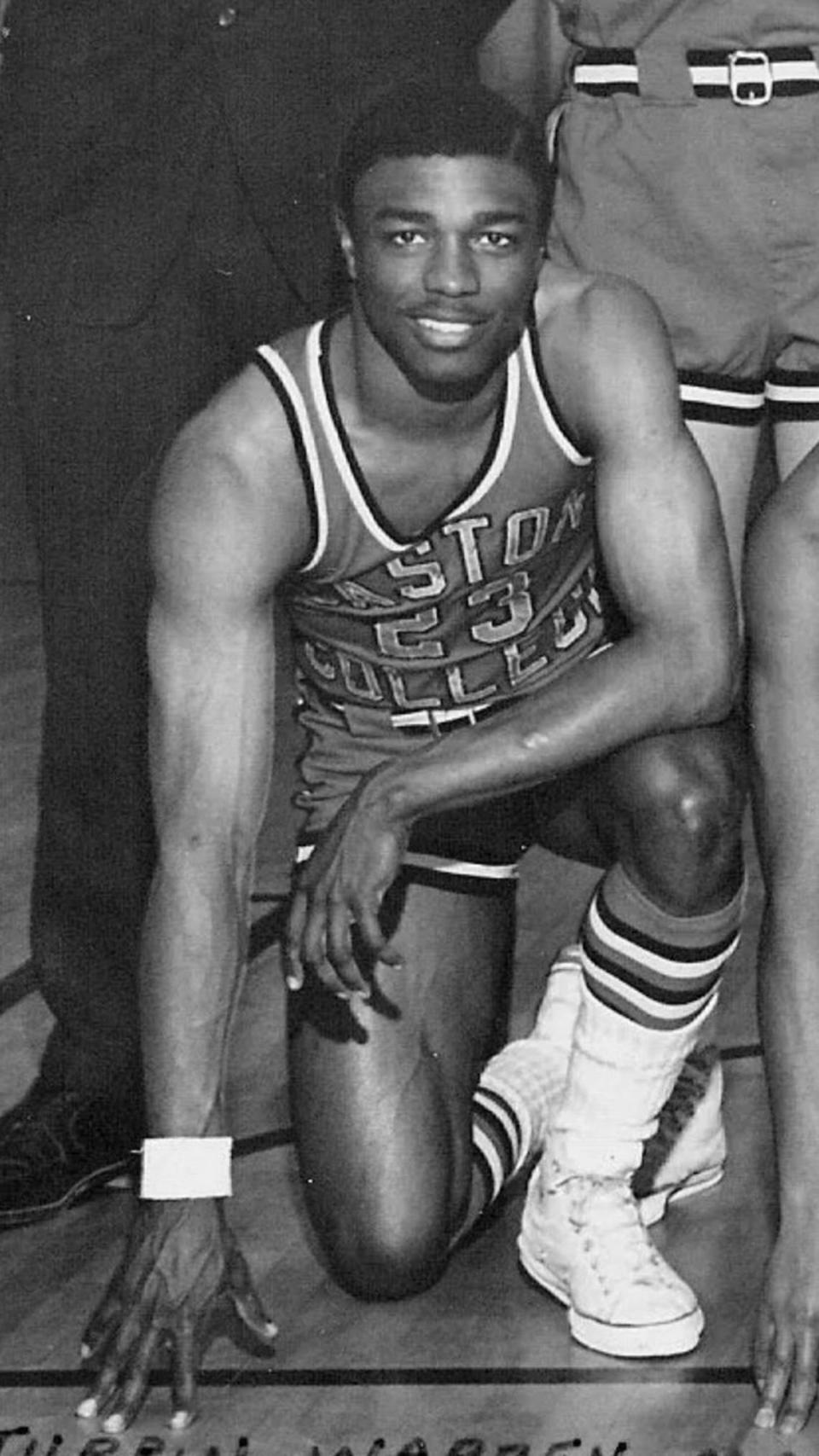
Hamilton catches a Fly
SF: After transferring from Gaston to UT-Martin to play for the rest of your college career, you ended up as a graduate assistant at Austin Peay in Tennessee for your first coaching job. Then, after becoming a full-time assistant, you got sent to New York on your first recruiting trip and landed future All-American James “Fly” Williams. How did you do that?
LH: I was 23 years old. Married. Had a son. And I’d adopted my brother (Hamilton would end up officially adopting several of his siblings when they became teenagers, trying to get them out of Gastonia and into situations where they could also go to college and share his medical benefits).
Austin Peay’s head coach was named Lake Kelly. He was great. He said I could go to New York to recruit. But I was so green. I didn’t know you had to have a credit card to rent a car. I thought you just walked up there and gave them some cash.
So I took taxis and the subway everywhere and got lost a lot. But I went to see this kid, Fly Williams. I got to his house about 7 p.m., which was when he was supposed to be home.
He didn’t come at 8 p.m., or 9 p.m. His mother was very nice though, and I said, “Well, I’ll just stay here and wait.”
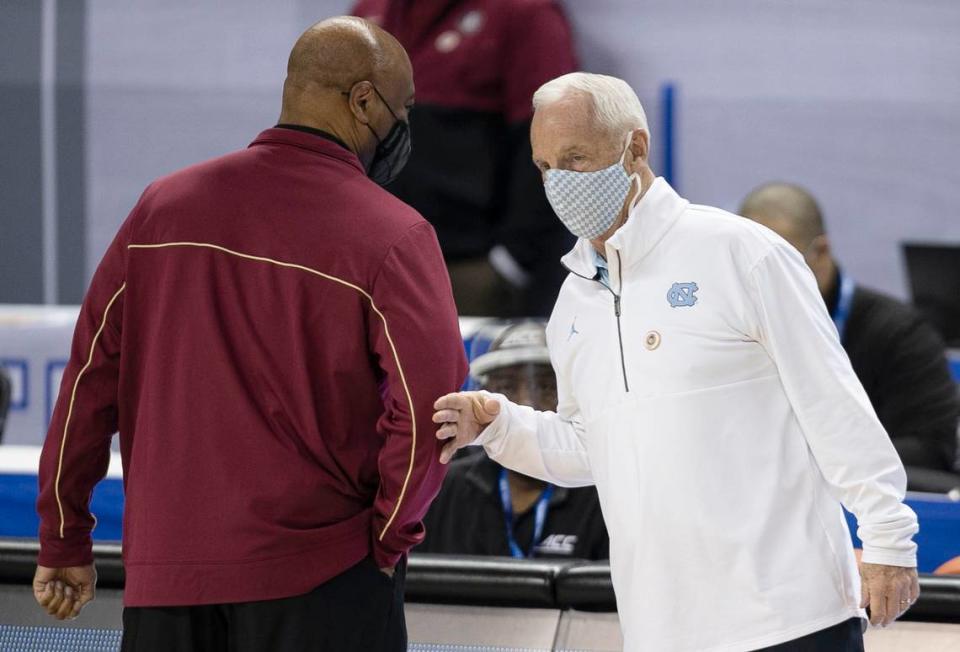
So we talked and talked, and at 1 a.m. he’s still not there.
She got up to go to the bathroom, and I turned the clock back to 11 p.m. It was just sitting on the table, and I just whipped that bad boy back. Later, she had to go to the bathroom again, and by now the sun is about to come up. So I closed the blinds and pulled the curtains down so she wouldn’t see the sun.
About 7:30 a.m., Fly came in. He and I just hit it off. I’d been there 12 hours. I felt like I had to outwork everyone.
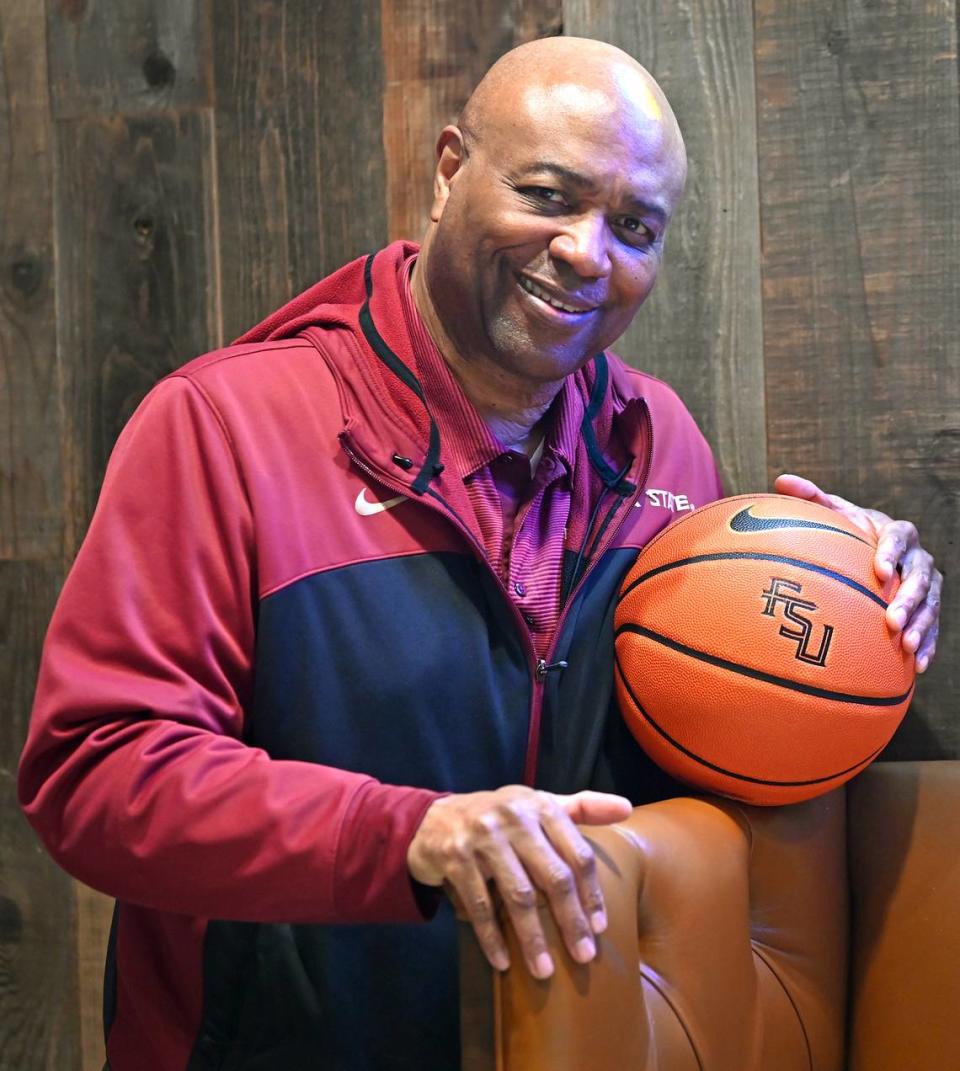
A job in Charlotte, for a week
SF: Fly coming to Austin Peay led to one of college basketball’s greatest chants: “The Fly is open! Let’s go Peay!” From that job you ended up as a very high-profile assistant coach at Kentucky after briefly quitting coaching entirely?
LH: At Austin Peay, we had gone to the NCAA tournament two years in a row, basically with a team I’d helped recruit. And Coach Kelly was starting to get mentioned for a lot of big-time jobs. I had a great relationship with the school president (Joe Morgan), who had hired me. So I walked into his office and said: “You know, Lake is getting considered for a lot of jobs. I want to know if I’m going to be the next head coach at Austin Peay.”
I’m not a cocky person. That’s not my MO. But I wanted to know.
I didn’t realize that I’m only 26, and I didn’t realize that there weren’t many Black head coaches, period, in the country. And (President Morgan) told me that nothing would make him happier than for me to be the head coach. But he’s retiring (in a few years). And he wasn’t sure he was strong enough. Now that’s about as nice as he could say it. ... But it hurt me so much. It just kind of cut my guts out because I couldn’t be the head coach, because I was Black.
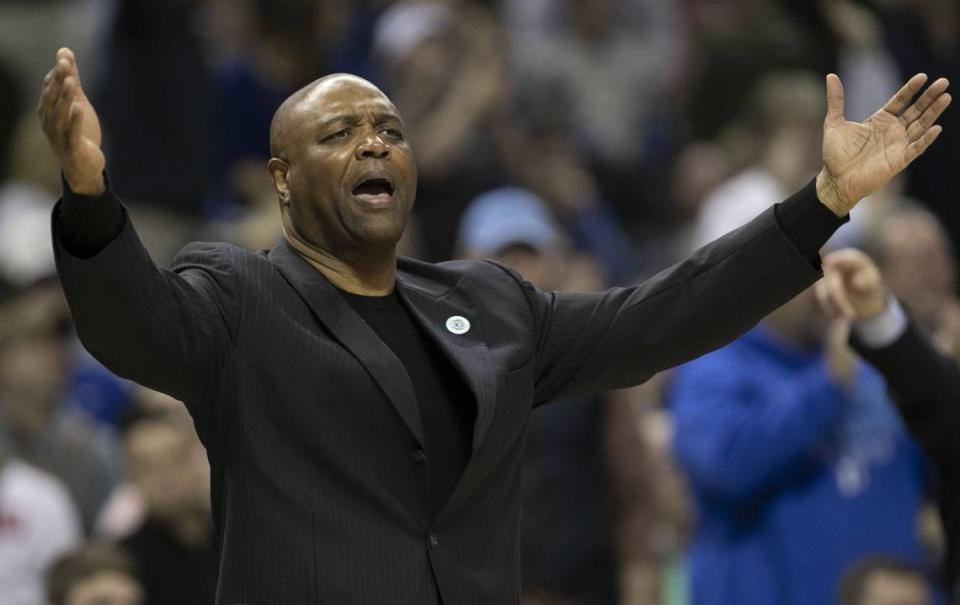
SF: Is that how he put it?
LH: That’s not what he said, because he cared about me. But that was how I read it.
That was on a Wednesday. I resigned on Thursday. And I moved out of my house on Friday and took a job in Charlotte with Dow Chemical.
I went to work that Monday in Charlotte and Joe B. Hall (Kentucky’s head coach) called me about 12 o’clock at the hotel where we were staying. He said, “I have an opening on my staff. Would you like to be considered for it?”
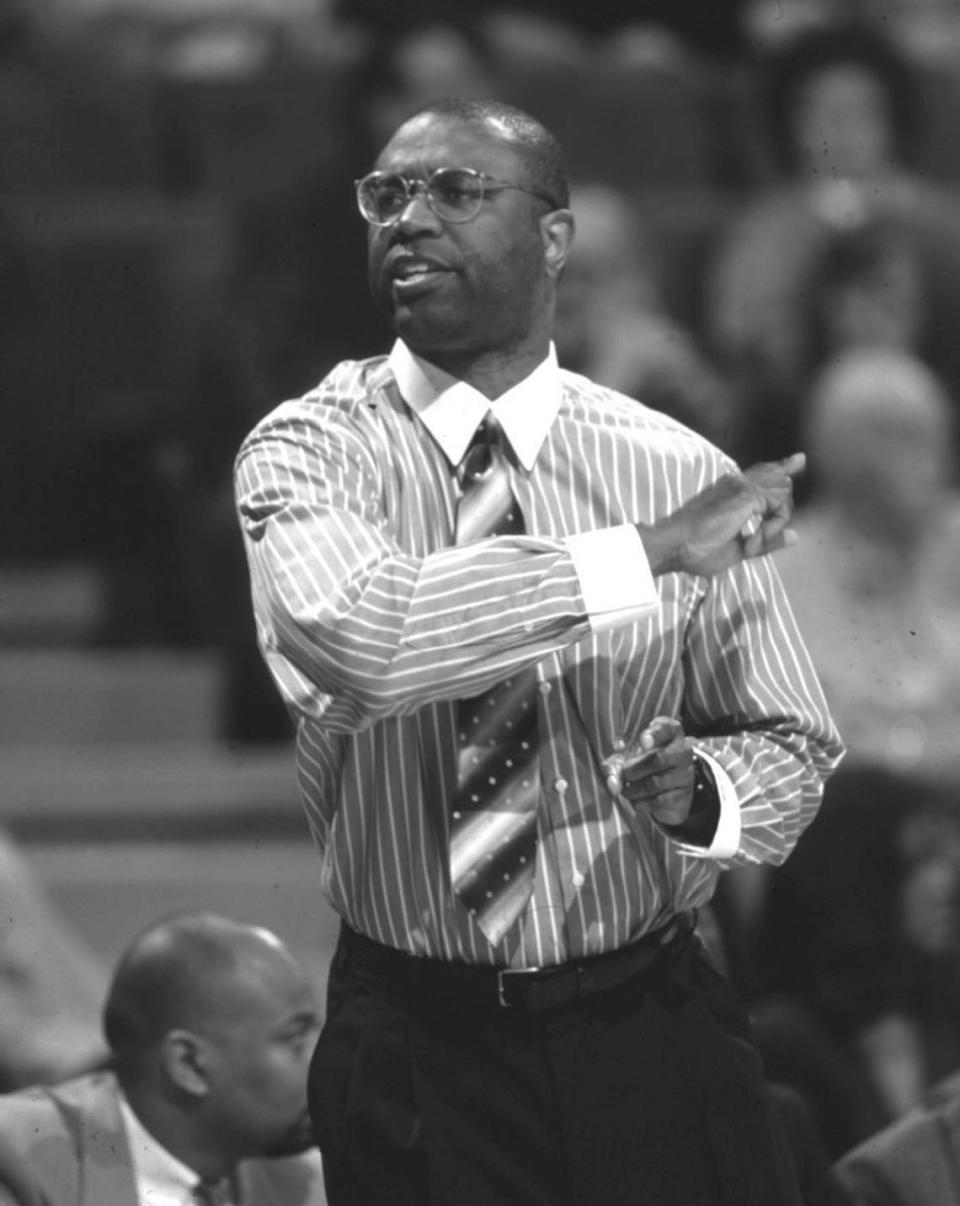
I did the interview, came back to Charlotte and went to work, getting ready to be the No. 1 chemical salesman in the country. But the next week Joe Hall called me around lunchtime, offered me the job and I accepted.
I tried to resign from Dow Chemical, but all the executives went to lunch from 12-1. So I got a piece of paper off somebody’s desk and wrote: “To whom it may concern, I resign my position, effectively immediately. Thank you very much for the opportunity, Leonard Hamilton.”
The retirement question
SF: After head-coaching stops at Oklahoma State and Miami, as well as a year in the NBA coaching the Washington Wizards, you ended up at Florida State in 2002 and have been coaching the Seminoles for the past 22 seasons.
At age 75, most of your peers have retired. What do you tell people when they ask you the retirement question now?
LH: Well, it’s starting to be a little more of a challenge personally, because some coaches like to use it against you in recruiting. And with all the challenges that exist in college sports now, with the portal, and the NIL, and when you look at where we are now — if you look at me on TV, you might say, “Man, he looks like he maybe better do something (else).”
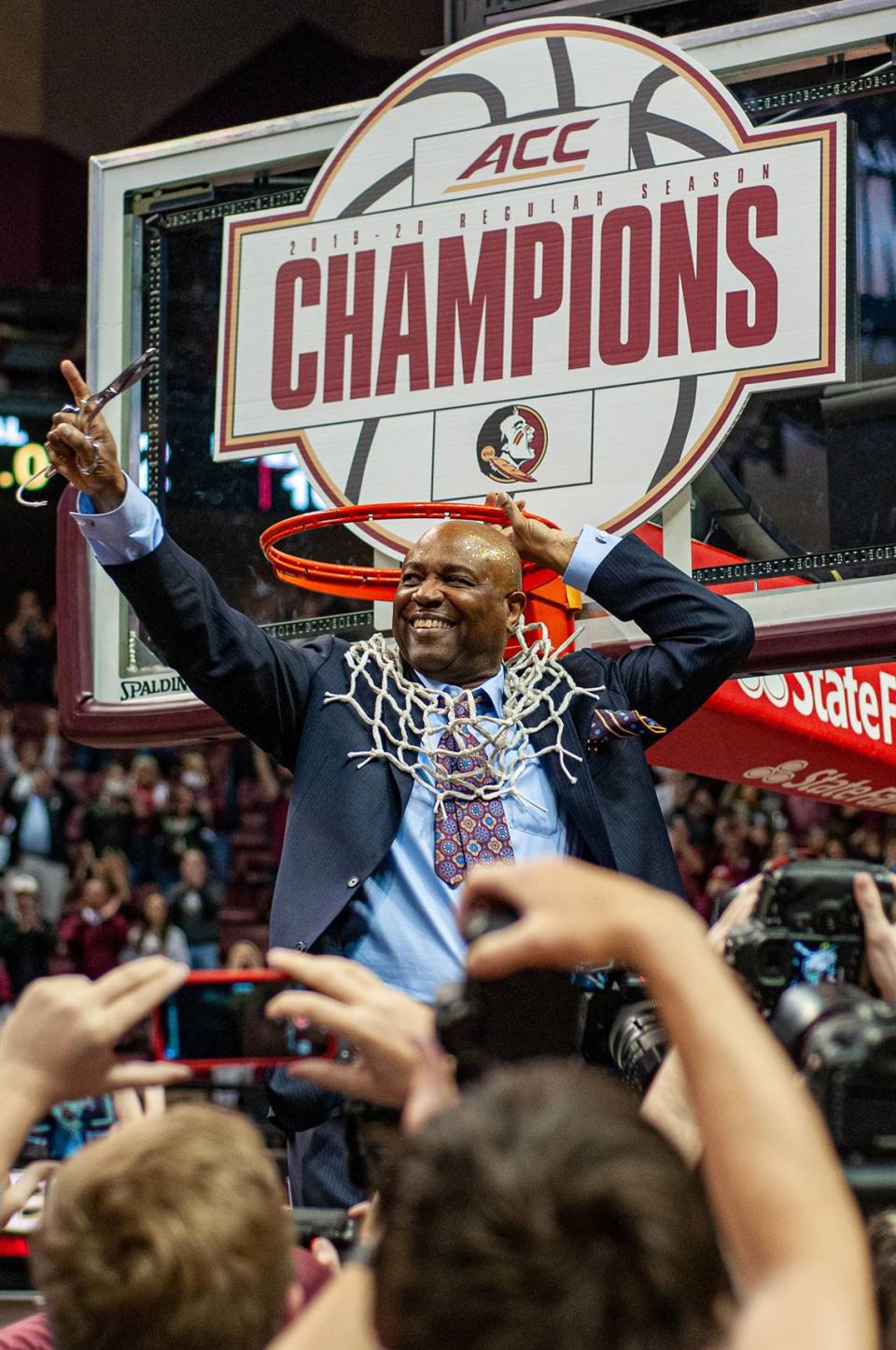
But I’ve always been a fighter. I’ve never been a person who walked away from any challenges. And I feel like it’s important that I re-establish our program to where we have been. I have as much energy as I always have. I don’t feel like I’ve completed my job.
And when you have a dip, you’ve got to figure out how to climb back out of it. Right now, today, I’m as focused as I ever have been.
And when that time comes? The peace of understanding is still with me every day. When that peace stops to exist, and I start being challenged by all the differences, I’ll do it at the right time in the right way. But I don’t feel that now.
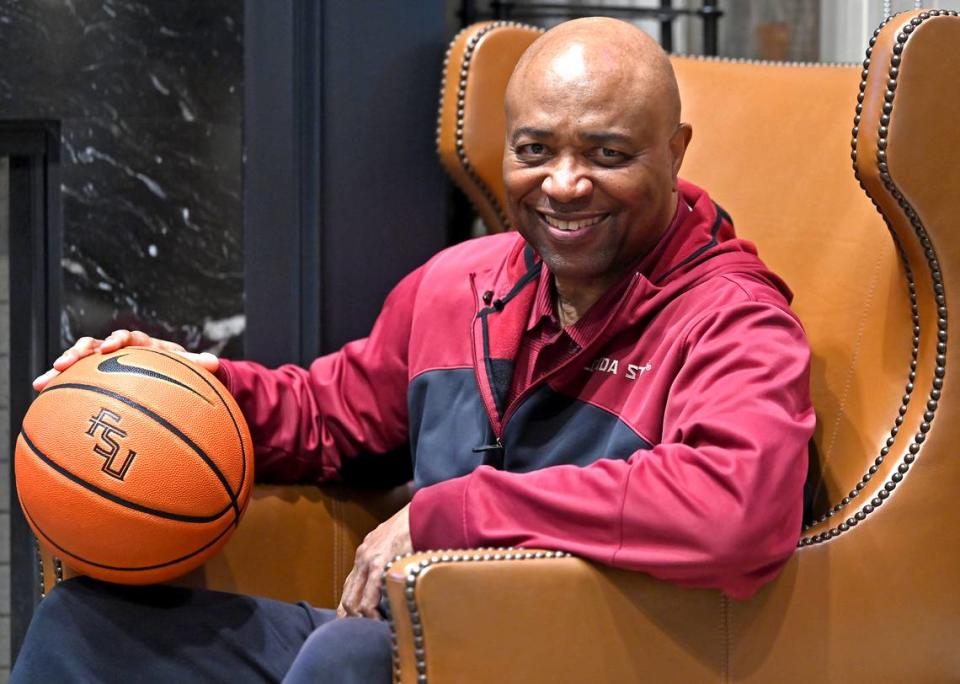
For a fuller version of this interview in podcast form, go to “Sports Legends of the Carolinas,” wherever you find your podcasts, and search for the Leonard Hamilton episode.
Previous “Sports Legends” interviews with guests including Richard Petty, Steph Curry, Roy Williams, Mike Krzyzewski, Jake Delhomme, Bobby Richardson, Thomas Davis and Dawn Staley are also available on the podcast. New “Sports Legends” episodes debut every 2-3 weeks throughout 2024. The “Sports Legends” coffee-table book was published in late 2023 and is now available at SportsLegendsBook.com.


